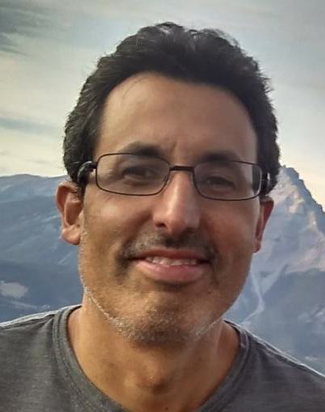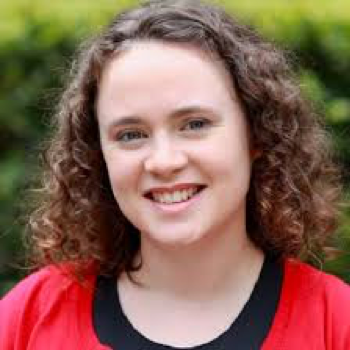Come and hear from our group of panelists about careers in bioinformatics and computational biology! Our panelists represent a wide range of paths at different stages of their careers in both industry and academia. They will be offering their insights and advice on a wide range of topics important to research students.
Discussion topics will touch on:
– Transitioning to industry after your studies
– How to be competitive in academia
– Working in Australia and abroad
– Valuable skills that are sought after in bioinformatics
– What employers are looking for in your CV
– Discussions of work life balance
Professor Rafael Irizarry

Rafael Irizarry is a Professor of Applied Statistics at Harvard and Chair of the Department of Data Sciences at Dana-Farber Cancer Institute. His research focuses on Genomics and he teaches several Data Science courses.
Rafael Irizarry received his Bachelor’s in Mathematics in 1993 from the University of Puerto Rico and went on to receive a Ph.D. in Statistics in 1998 from the University of California, Berkeley. His thesis work was on Statistical Models for Music Sound Signals. He joined the faculty of the Department of Biostatistics in the Johns Hopkins Bloomberg School of Public Health in 1998 and was promoted to Professor in 2007. He is now Professor of Biostatistics and Computational Biology at the Dana-Farber Cancer Institute and a Professor of Biostatistics at Harvard School of Public Health. Since 1999, Rafael Irizarry’s work has focused on Genomics and Computational Biology problems. In particular, he has worked on the analysis and signal processing of microarray, next-generation sequencing, and genomic data. He is currently interested in leveraging his knowledge in translational work, e.g. developing diagnostic tools and discovering biomarkers.
Professor Irizarry also develops open source software implementing his statistical methodology. His software tools are widely used and he is one of the leaders and founders of the Bioconductor Project, an open source and open development software project for the analysis of genomic data. Bioconductor provides one of the most widely used software tools for the analysis of microarray data.
Professor Irizarry has developed several online courses on data analysis that are offered by HarvardX and which have been completed by thousands of students. These courses are divided into two series: Data Analysis for the Life Sciences and Genomics Data Analysis. Much of the material is included in a book with an online version available for free.
Dr Denis Bauer

Dr Denis Bauer is an internationally recognised expert in machine learning, specifically in processing big genomic data to help unlock the secrets in human DNA. Her achievements include developing an open-source, artificial intelligence-based cloud-service that accelerates disease research and contributing to national and international initiatives for genomic medicine funded with over $500M.
As CSIRO’s transformational bioinformatics leader, Denis is frequently invited as a keynote at the international medical and IT conferences including Amazon Web Services Summit 2019, International conference on Frontotemporal Dementia ‘18, Alibaba Infinity Singapore ’18 and Open Data Science Conference India ’18. Her revolutionary achievements have been featured in international press such as GenomeWeb, ZDNet, Computer World, CIO Magazine, the AWS Jeff Barr blog, and was in ComputerWeekly’s Top 10 IT stories of 2017.
Denis holds a BSc from Germany and PhD in Bioinformatics from the University of Queensland, and has completed postdoctoral research in both biological machine learning and high-throughput genetics. She has 38 peer-reviewed publications (18 as first or senior author), with over 1000 citations and an H-index 16.
Denis advocates for gender equality in IT, and is active on CSIRO’s Inclusion and Diversity committee.
Professor Marcel Dinger

Marcel Dinger is Professor and Head of School for Biotechnology and Biomedical Sciences at UNSW Sydney.
Professor Dinger has more than 20 years experience in genomics as both an academic and entrepreneur. He was the founding CEO of Genome.One, one of the first companies in the world to provide clinical whole genome sequencing services. He is also founder of two successful IT companies and is the recent co-founder of a precision healthcare start-up, Pryzm Health. Marcel was the inaugural Head of the Kinghorn Centre for Clinical Genomics (KCCG) at the Garvan Institute of Medical Research from 2012-2018.
Professor Dinger’s research laboratory seeks to establish new links between phenotype and genotype, particularly between rare and complex disease and underexplored regions of the genome, such as pseudogenes, repetitive elements, and those folding into non-canonical DNA structures or are transcribed into noncoding RNAs. Harnessing the potential of population scale genomic datasets, and sophisticated data science methods, the laboratory aims to bring an objective perspective to better understand how the genome stores information and how it is transacted in biology.
Professor Dinger graduated with a PhD in Biochemistry and Molecular Biology from the University of Waikato, New Zealand in 2003. Attracting more than 15,000 citations, he has (co)-authored more than 120 papers, many of which appear in the most high profile journals in the life sciences. In 2016, Marcel was admitted as a Fellow into the Faculty of Sciences of the Royal College of Pathologists of Australasia and is a Graduate of the Australian Institute of Company Directors.
Dr Emliy Wong

Dr Emily Wong is a newly joined group leader at the Victor Chang Cardiac Research Institute, Sydney. Her lab is interested in the regulatory basis of cell and organism phenotype.
Emily has a degree BSc (Hons) at the University of New South Wales, majoring in Biology. After a Masters degree in Bioinformatics at the University of Sydney, Emily continued to undertake her PhD in comparative genomics in the Faculty of Veterinary Sciences. There she studied the evolution of mammalian immune gene families under the supervision of Professor Kathy Belov and Professor Tony Papenfuss.
After a brief period at the Institute for Molecular Biosciences, Emily was recruited to the laboratory of Paul Flicek at the European Bioinformatics Institute (EMBL-EBI), Cambridge, UK, where she studied mammalian regulatory genomics using mouse models in close collaboration with Duncan Odom at Cancer Research.
In 2019, Emily returned to Australia to take up an ARC DECRA Fellowship at the School of Biological Science at the University of Queensland to work in the laboratory of Prof. Bernie Degnan. Broadly, her work aims to understand the impact of non-coding variation in regulatory evolution using varied approaches. Emily has been supported by two EMBO Fellowships and a University of Queensland Fellowship.